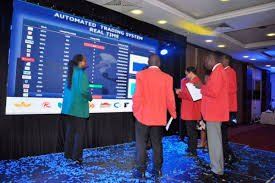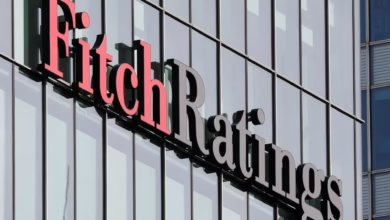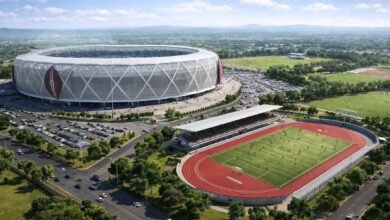
The 21st Replenishment Pledging Conference of the International Development Association (IDA) kicked off with a clarion call for global cooperation to confront the interlinked crises of poverty, climate change, and economic inequity. This replenishment cycle introduces a groundbreaking financial package aimed at empowering the world’s poorest nations to recover from crises and build long-term resilience.
At the core of IDA21 lies a comprehensive policy framework that prioritizes critical areas such as people, the planet, infrastructure, digitalization, job creation, gender empowerment, and addressing fragility.
IDA has streamlined its policy commitments, reducing them from 1,017 in IDA20 to a more manageable number, enhancing efficiency and cutting bureaucratic red tape. This simplification ensures that resources are deployed effectively, addressing capacity challenges in recipient countries without imposing unnecessary administrative burdens.
Financial Framework and Donor Commitments
The IDA21 replenishment cycle targets a historic $120 billion, a bold step in addressing urgent global needs. While the final figure hinges on donor pledges, the framework’s design reflects the urgency of the challenges at hand.
Dirk Reinermann, Director of IDA Mobilisation at the World Bank, said “We’ve streamlined IDA’s commitments, cutting policies by half to ensure agility and reduce unnecessary burdens on recipient nations. The financial framework we’ve proposed reflects the urgency and scale of the challenges we face, and we look forward to ambitious pledges from our donor partners.”
He noted the variation in donor contributions, with some countries pledging significant increases and others maintaining nominal commitments due to fiscal constraints. Despite currency fluctuations that may obscure contributions, donors using euros, yen, and renminbi have provided substantial local currency support.
Africa at the Heart of IDA’s Mission
This replenishment cycle comes at a pivotal moment for Africa. Earlier this year, African leaders convened in Nairobi, urging donors to align their contributions with the growing needs of the continent. Since its inception in 1960, IDA has committed $533 billion globally, with more than 70% of its funding directed to Africa. These investments have driven progress in infrastructure, education, healthcare, digitalization, and climate resilience.
Daouda Sembene, CEO of Africatalyst, highlighted IDA’s dual role as a resource provider and development partner:
“IDA should be seen not just as a concessional resource provider but as a partner working alongside borrower countries to address global challenges. These challenges are not just for Africa—they are challenges for the whole world.”
Expanding the Funding Base
In addition to increased financial contributions, IDA is diversifying its funding sources by engaging private sector actors, philanthropists, and emerging economies. This approach aims to create a more resilient financing model capable of addressing global development challenges at scale.
Trevor Lwere, Economic and Policy Analyst at Development Reimagined, underscored the transformative potential of poverty alleviation investments:
“Even modest investments can leverage funds up to four times their value. The model provides long-term, affordable financing, unlike other funding sources that often come with high costs or lengthy negotiations. This approach addresses immediate challenges while building long-term resilience.”
IDA21 also places a strong emphasis on civil society participation. This year, eight regional forums, including one in Nairobi, shaped the policy package with valuable insights. A newly introduced World Bank Group scorecard will ensure civil society’s ongoing role in shaping and monitoring development outcomes.
As the IDA21 replenishment process continues, the association reaffirms its commitment to tackling global poverty, promoting sustainable development, and fostering resilience in the world’s most vulnerable regions. With streamlined policies, innovative funding mechanisms, and strengthened partnerships, IDA is poised to lead the charge in addressing the interconnected challenges of our time.






I got good info from your blog
Pretty nice post. I simply stumbled upon your blog and wished to mention that I’ve really loved surfing around your weblog posts. In any case I’ll be subscribing in your feed and I am hoping you write once more soon!
I got good info from your blog
I am continuously searching online for posts that can benefit me. Thanks!
This is a topic close to my heart cheers, where are your contact details though?
I have recently started a web site, the info you offer on this web site has helped me tremendously. Thanks for all of your time & work.
Precisely what I was searching for, regards for putting up.
Great delivery. Sound arguments. Keep up the
great effort. https://z42mi.Mssg.me/
Your style is so unique compared to many other people. Thank you for publishing when you have the opportunity,Guess I will just make this bookmarked.2
Hi , I do believe this is an excellent blog. I stumbled upon it on Yahoo , i will come back once again. Money and freedom is the best way to change, may you be rich and help other people.
I am extremely inspired along with your writing skills as well as with the layout on your blog. Is this a paid subject matter or did you modify it your self? Either way keep up the nice quality writing, it is uncommon to look a nice weblog like this one these days..
Wonderful beat ! I would like to apprentice while you amend your website, how could i subscribe for a blog web site? The account helped me a acceptable deal. I had been tiny bit acquainted of this your broadcast offered bright clear concept